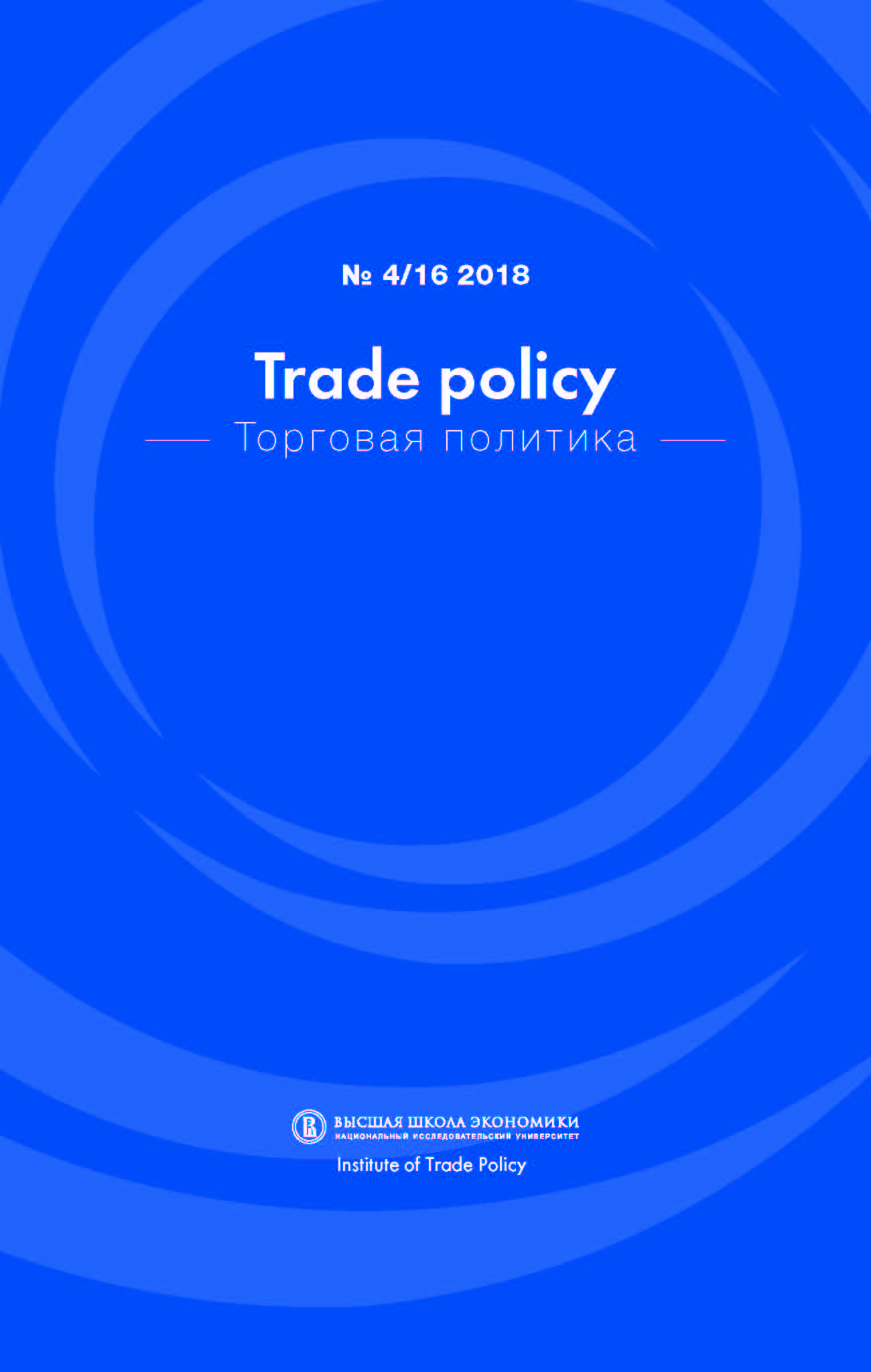
Message from Editor-in-Chief
Dear readers, we are glad to present the third English edition of our “Trade Policy” journal. It is published by the National Research University Higher School of Economics (HSE). The editorial office operates within the HSE Trade Policy Institute within which a Master’s programme “International trade Policy” was launched in 2017. We founded the journal in cooperation with colleagues of International Center for Trade and Sustainable Development (ICTSD), Geneva. We are very thankful to our foreign colleagues for their help and cooperation.
The new issue of the journal is devoted to the most topical issues of the global economy and cover a vast variety of aspects. It includes articles by the National Research University — Higher School of Economics professors, as well as papers of our foreign colleagues from Kazakhstan, Canada and Kyrgyzstan, and Russian
experts in the area of international trade policy.
A special feature of the current issue is the publication of a series of articles prepared by the participants of the special session of the WTO Public Forum “Trade 2030” which was organized and held jointly by the HSE and the Center for Trade Policy and Law of the University of Carlton (Canada). The articles continue the
discussion at the session on the impact of digital trade on mechanisms of international trade regulation and socio-economic development in the world (“Multi-level Negotiations on Digital Trade Policy; Influence of Digital Technologies in Trade on Economic Development; Risks and Challenges to Trade Within Digital Economy”).
As usual, the journal and its authors pay great attention to issues related to the development of economic cooperation within the Eurasian Economic Union (EAEU), as well as the economic and foreign economic cooperation of its Member States. The issue presents articles on application of trade policy instruments (“Application of Non-tariff Measures in the Eurasian Economic Union”) and migration processes in the EAEU (“The Migration Response to the Economic Factors: Lessons from Kazakhstan”). Another article presents expert analysis devoted to such an important problem as the development of export potential of the EAEU Member States and discusses theoretical and practical aspects of this issue. It includes the factor of the
WTO membership and is based on the data for Kazakhstan (“Theoretical Aspects of Export Potential, its Essence and Development”). Readers will also be able to read the comments of experts on the first years of practice of the Eurasian Economic Union on various issues, in particular, the mutual recognition of decisions of customs authorities, the introduction of anti-dumping measures, and procedural issues (“The Court of the Eurasian Economic Union: Some Initial Jurisprudence”).
The journal continues to publish papers on the current topic of the UK’s exit from the EU. Future models of trade policy of this country are analyzed in the article within the economic integration section (“Prospective Models for Britain’s Trade Policy after Withdrawal from the EU”).
We hope that materials published in this issue will be of interest to Russian and foreign readers, resulting in larger audience familiar with the covered matters. We highlight that we are happy to welcome our readers as contributors to the journal development.
We are happy to welcome our readers as contributors to the journal and its further development.
M. Medvedkov
